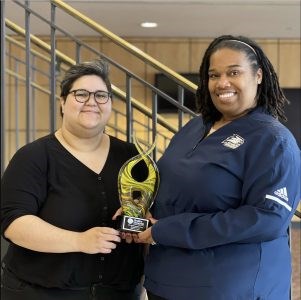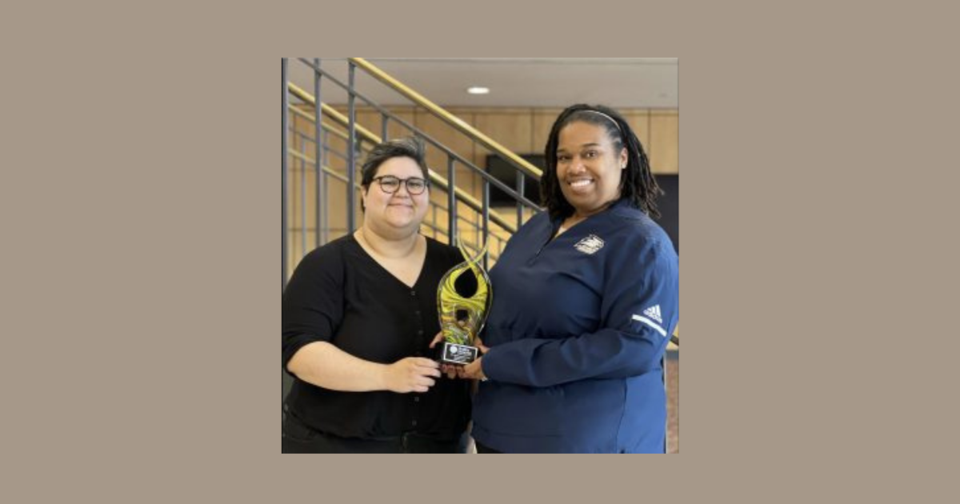"A photo speaks louder than words."
That’s the proverbial premise behind the Savannah H.O.P.E. Photovoice Project, a visual, community-based research project led by Georgia Southern researchers that helps identify social, cultural and physical barriers that Black mothers in Chatham County face while breastfeeding.

“A lot of them are physical barriers,” said Christina Cook, double-Eagle and assistant on the project. “There is just not a space available. It was really surprising. Even in churches, one of the moms said that whenever she would go to church the only place for her to go was the bathroom. Or someone was ushered into the office to nurse there.
As part of the CDC's $3.4 million grant, Healthy Opportunities Powering Equity (H.O.P.E.), the localized project allows those who seldom have the chance to voice their concerns share their experiences with the hope of creating social change.
The photovoice method was utilized, as participants captured images of local breastfeeding barriers. Some snapped shots in corporate settings and public areas without access to breastfeeding areas, while others hinted at a lack of family support or pushback based on cultural norms, captured with photos in familial surroundings.
“The other ones have been sociocultural like this is something that Black people don’t do or what family members would say. Or going into a public park and people just staring at the moms while they breastfed,” said Cook.
Sessions facilitated by Cook and Marshall allowed participants to talk about the photos, their perspectives and ideas for change with one another to help guide resolutions to overcome barriers for improved local breastfeeding equity.
The project won a 2021 Health Innovation Award from Healthy Savannah.
The research and photos were compiled into a photobook, which serves as a tool for Cook and Marshall to share with local businesses and community organizations.
As someone who “stumbled” into public health after a stint as an anthropology undergraduate assistant at Armstrong State University, helping Somali immigrants seek equitable health care, Cook is grateful to have discovered a field that continually inspires her.
“It’s been a journey,” said Cook. “Sometimes we have those moments when Dr. Marshall and I meet and it’s that whole thing of, have we done enough? And our answer is usually no.
“But saying how much we’ve done, it’s a lot. But the journey ahead is also a lot. So we’re trying to take it as we can and try to pull in as many community members and partners as we can. The ones I’ve talked to so far have been really excited about it.
“I always try to reach out to whoever is in human resources and a lot of those individuals have either had firsthand or secondhand experiences with breastfeeding or chestfeeding so they have been immensely helpful and incredibly excited to do as much as they possibly can to make sure that these barriers are addressed, and that nursing connections happen and as barrier-free as possible.”
Double Eagle Christina Cook (’16,’19) has assisted Savannah H.O.P.E. Photovoice Project lead Nandi Marshall, DrPH, associate professor in the Jiann-Ping Hsu College of Public Health (JPHCOPH) and associate dean of Academic Affairs, for the last three years. First serving as the JPHCOPH graduate assistant while completing a master’s in public health and now as Marshall’s graduate assistant in the public health doctoral program, Cook has taken pride in helping others amplify their voices.
In turn, she found her own.
Most special for Cook has been “being able to connect with people, especially in the community and actually hearing what’s going on,” she said. “Everything in this research project has allowed me to do that and really understand what the issues are and how we can address them.”




